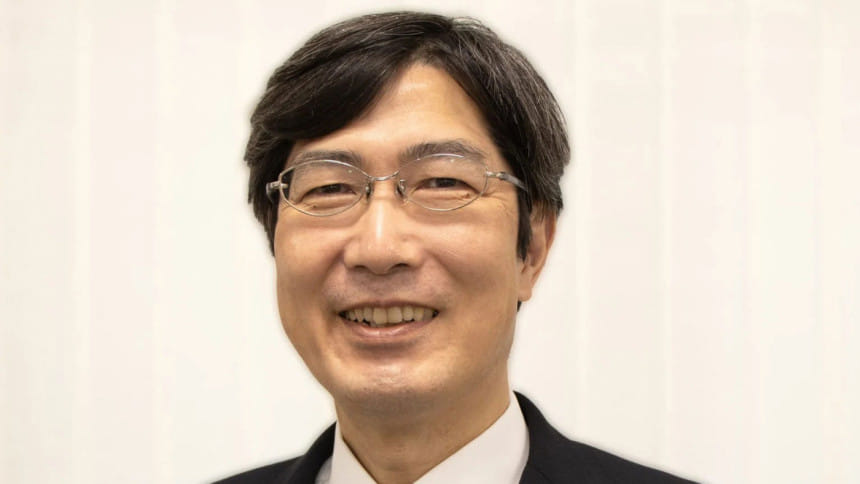Phasing out tax holiday in EZs a violation of deals

Implementation of the budgetary proposal to phase out a tax holiday for investors and developers of private economic zones (EZs) will be a violation of agreements signed over developing the zones, according to the Japanese ambassador to Bangladesh.
"If the tax benefits and investment incentives of BSEZ (Bangladesh Special Economic Zone) were reduced or abolished, it would be a violation of the contractual provisions set out in the development agreement," said the ambassador, Iwama Kiminori.
For both governments, who place importance on compliance with the law, such a contract violation cannot be overlooked, he noted.
The Japanese ambassador expressed these concerns on Monday in a letter to Finance Minister Abul Hassan Mahmood Ali, who had proposed the national budget for the upcoming fiscal year on June 6.
The budget had also proposed withdrawing a zero-duty benefit on the import of capital machinery, components and construction materials in FY25.
As a result, firms operating in the industrial enclaves will have to pay a 1 percent customs duty.
"We express strong concern that the recent proposed removal of incentives to EZs is incompatible with medium-term to long-term economic growth policies," Kiminori said.
Bangladesh has been attracting attention as a promising investment destination for Japanese companies in recent years, but there is a great concern that this measure will damage trust in the Bangladesh government's industrial and economic policies, he said.
He also said it would result in the country being removed from the list of promising investment destinations compiled by international companies.
Increasing tax revenue is understandably an urgent issue as Bangladesh is going to graduate from least developed country status and aims to become an upper middle-income country by 2031 and a developed country by 2041, said Kiminori.
"However, we must emphasise the importance of foreign direct investment to bring industrial diversification, macroeconomic stabilisation and job creation," he said.
The Japanese ambassador requested the Bangladesh government to take steps to retain the investment incentives for the BSEZ, also known as the Japanese economic zone, at Araihazar in Narayanganj.
According to him, the BSEZ has already received investments from eight international companies while a few others showed interest following its inauguration.
Japanese companies in particular place great importance on policy consistency, long-term commitments and contributions to the local society, said Kiminori.
The letter said Sumitomo Corporation, Japan International Cooperation Agency and Bangladesh Economic Zones Authority (Beza) signed a joint venture agreement to form a company named BSEZ to develop and operate the zone as a flagship project of the Japanese and Bangladesh governments.
The BSEZ signed another development agreement with Beza which clearly states the tax benefits and incentives set out in the BEZA Act 2010, it said.
Afterwards, the BSEZ signed contracts with tenant companies based on the development agreement, he said.
The reduction or elimination of investment incentives will have a significant impact on the international tenant companies that decided to invest based on their trust in the Bangladesh government's investment attraction policies, he said.
"We have requested the Prime Minister's Office and the National Board of Revenue to retain existing customs duty, value added tax, and income tax facilities," Shaikh Yusuf Harun, executive chairman of Beza, told The Daily Star yesterday.
The government is focusing on planned industrialisation and increased investment inflows and appropriate decisions will be taken, he said.
"Investors of the private EZs may enjoy the existing facilities but they will have to meet some new conditions," a finance ministry official told The Daily Star on Tuesday.
As part of government efforts to spur industrialisation, augment export earnings and create jobs through the setting up of 100 economic zones across the country, Beza has already granted approvals to establish 29 private economic zones.
Of them, eight are already operational.
Currently, investors in the EZs qualify for a tax break for a decade starting from the first year of their operations. They are entitled to a full tax waiver in the first three years.
The investors are granted an 80 percent tax waiver in the fourth year, 70 percent in the fifth year, and 60 percent in the sixth year.
The tax waiver declines by 10 percentage points in each subsequent year before standing at 20 percent in the 10th year.

 For all latest news, follow The Daily Star's Google News channel.
For all latest news, follow The Daily Star's Google News channel. 



Comments